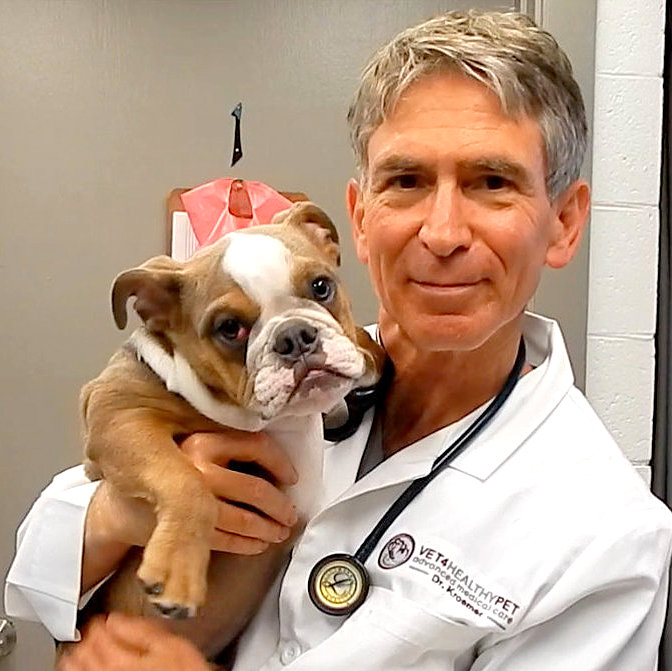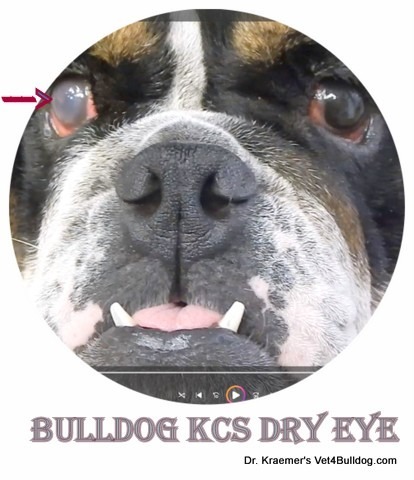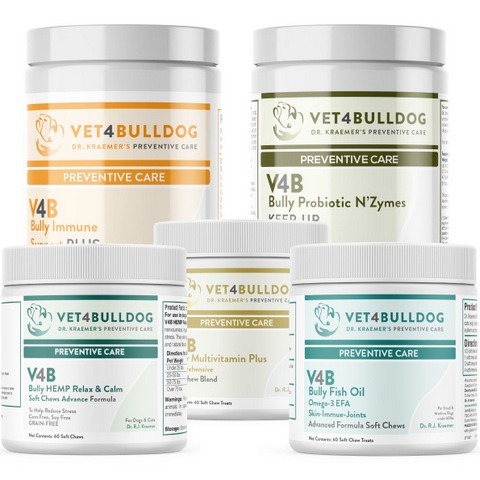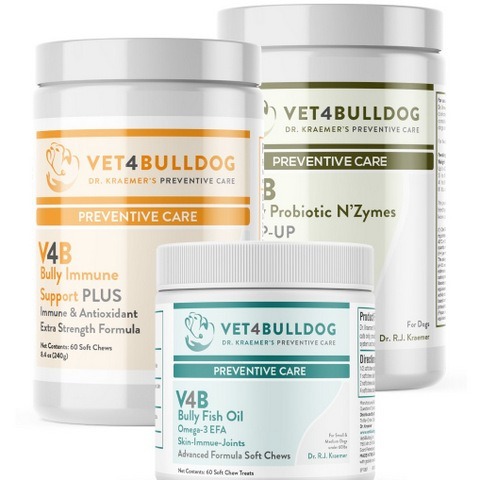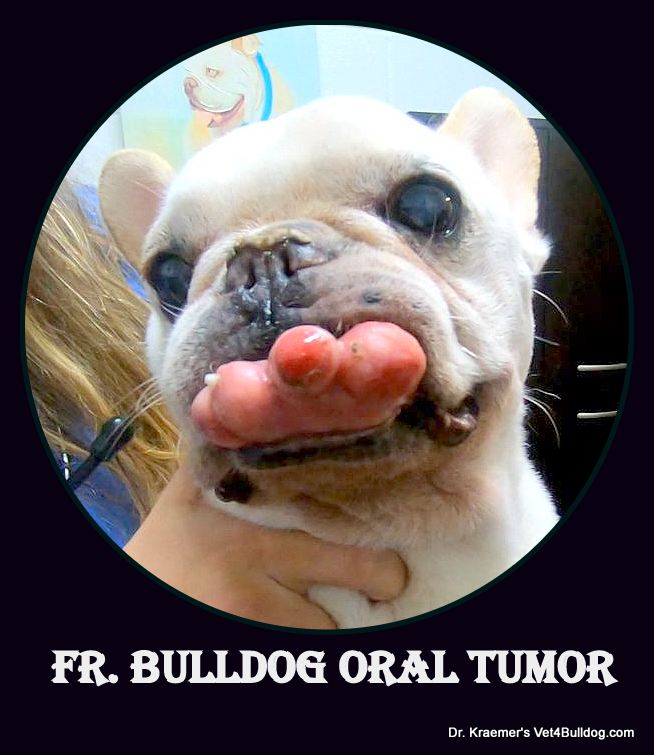Introduction To Bulldog and French Bulldog Pemphigus (Skin Autoimmune Disease)
Pemphigus in bulldogs is a confusing and frustrating condition—basically, your pup’s immune system gets its wires crossed. Instead of protecting your dog from real threats (like bacteria or viruses), it mistakenly attacks their healthy skin cells, thinking they’re the enemy.
We don’t always know why this happens—it’s often referred to as “idiopathic,” meaning there’s no obvious cause. But it’s likely triggered by small changes in the way your dog’s skin cells are “read” by the immune system, leading it to launch an attack where it shouldn’t..
Autoimmune disease in bulldogs and French bulldogs manifests as an unregulated inflammatory response, where the dog’s immune system wrongly assaults its own body.
Examples Of Autoimmune Diseases in Bulldogs and French Bulldogs
- Pemphigus: This is the most common autoimmune skin disease in these breeds, causing blistering, crusting, and hair loss.
- Immune-mediated hemolytic anemia (IMHA): This attacks red blood cells, leading to anemia, weakness, and pale gums.
- Inflammatory Bowel Disease (IBD): This chronic condition affects the digestive tract, causing inflammation, diarrhea, vomiting, and weight loss.
- Keratoconjunctivitis sicca (KCS): This condition, also known as dry eye, occurs when the tear glands don’t produce enough tears, leading to discomfort, inflammation, and potential vision problems.
- Lockjaw Masticatory Muscle Myositis (MM): This autoimmune disease affects the muscles responsible for chewing, causing jaw stiffness, pain, and difficulty eating.
What Is Autoimmune Disease?
Our Frenchie’s immune system is like her personal security team—constantly on patrol to keep her safe from things like bacteria and viruses. Normally, this team knows exactly who belongs and who doesn’t.
Each of her healthy skin cells wears a special “ID badge” (called a receptor), and immune cells are trained to recognize that badge and leave those cells alone.
But with pemphigus, that system goes haywire. Her immune cells can’t read the badge correctly anymore, like using the wrong key for the lock. Suddenly, her healthy skin cells are mistaken for intruders, and the immune system starts attacking them by mistake.
The result? Painful, inflamed skin that looks and feels miserable for both of you.
Early diagnosis and the right care plan can make a difference.
What Is Pemphigus?
Pemphigus is an autoimmune condition where your bulldog’s immune system gets confused and starts attacking her skin. The most common type—pemphigus foliaceus—goes after the outermost layer of the skin (called the epidermis), which normally acts like her natural armor, protecting her from sun, dirt, allergens, and everyday irritants.
When this layer gets damaged, it can lead to crusty sores, hair loss, and redness, especially around the face, ears, and paws.
And just a heads-up: there are different types of pemphigus, and while foliaceus is the most common (and often manageable), some forms can be more serious and harder to treat. That’s why early detection and a trusted vet partner are so important.
What Causes Bulldog Autoimmune Disease?
- Genetics: Some breeds are predisposed to autoimmune diseases, and bulldogs and French bulldogs may have a genetic component.
- Environmental factors: Triggers like infections, viruses, medications, or stress may play a role.
- Other factors: The exact mechanisms of these diseases are still not fully understood.

What Are The Common Autoimmune Diseases?
Autoimmune disease in bulldogs and French bulldogs can affect many body systems, each with matching symptoms. Examples are:
- GI tract: IBD
- Central nervous system (CNS)
- Joints: Polyarthritis
- Blood cells: autoimmune hemolytic anemia
- Skin: Pemphigus
- Eyes: KCS
Pemphigus foliaceus is the most common form seen in bulldogs. It affects the epidermis—the top layer of the skin, which normally acts like your pup’s natural shield, protecting her from sun, allergens, bacteria, and other harsh environmental irritants.
While this type can still cause crusting, redness, and discomfort, it’s generally more manageable than other, deeper forms of pemphigus.
💡 Important to know: Some rarer types of pemphigus go beyond the surface and attack deeper layers of skin, or even the mouth and internal organs. These versions are more aggressive and can be much harder to treat
How to Diagnose Autoimmune disease in bulldogs and French bulldogs?
- CYTOLOGY: Abnormal cells consistent with pemphigus can be found on cytology
- BIOPSY: histopathology
- BLOOD & URINE
- SCRAPE: to rule out skin mites
- CULTURE: to help identify harmful bacteria
Before initiating potentially harmful immune suppressant drug treatment, pemphigus should be confirmed by cytology and biopsies.

How To Treat Bulldogs and Fr. Bulldog Pemphigus?
The treatment combines systemic and topical therapies.
#1 BULLDOG PEMPHIGUS STEROID TREATMENT:
The go-to treatment for pemphigus is usually immunosuppressant medication like steroids—drugs that help calm your bulldog’s overactive immune system and reduce skin inflammation.
⚠️ A quick word of caution: These meds can come with side effects, especially when used long-term. That’s why your vet will likely start with a higher dose, then slowly taper it down as your pup’s skin starts to heal. It’s all about finding the lowest dose that keeps symptoms under control while minimizing risks.
Always follow your vet’s guidance and keep an eye out for changes in your dog’s energy, appetite, or behavior during treatment
#2 STEM CELL THERAPY FOR AUTOIMMUNE DISEASES:
In certain cases—especially when side effects from traditional immune-suppressing drugs become a concern—I’ve turned to something truly groundbreaking: stem cell therapy. This advanced regenerative treatment taps into your dog’s healing power and offers a more natural, targeted way to calm the immune system and repair damaged skin.
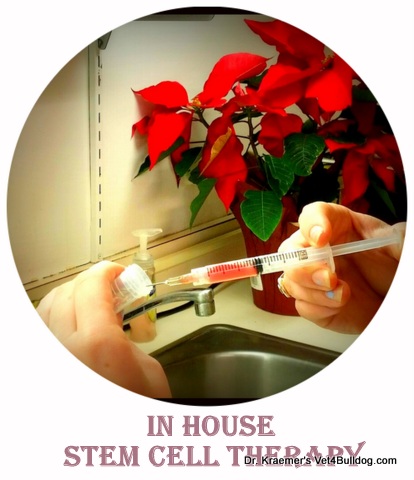
#3 ANTIBIOTIC & ANTIFUNGAL:
To help treat secondary infections.

#4 BULLDOG TOPICAL THERAPEUTICS:
Topical therapeutics can help control
- bacterial infection
- yeast infections
- Remove dead scales
- Support skin hydration
- repair skin barrier
- reduce inflammation
Bulldog Pemphigus Topical Therapeutics
- V4B Bully Antibacterial & Anti-Yeast Medicated Shampoos & Gels
- V4B Bully Antibacterial & Anti-Yeast Medicated Wipes & Spray
- V4B Bully Hydrating Itch Control Shampoos & Conditioners
- V4B Bully Aloe Oatmeal Shampoo and Conditioner
#5 BULLDOG THERAPEUTIC SUPPLEMENTS:
- help control the itch
- repair skin barrier
- boost the immune system
- reduce inflammation
- Support the skin and gut microbiome
Bulldog Pemphigus Therapeutic Supplements
- V4B Bully Immune Support & Anti-Oxidants
- V4B Bully StressLess and Calm
- V4B Bully Prebiotics & Probiotics with Digestive Enzymes
- Probiotics: These beneficial bacteria can help restore the natural balance of the gut microbiome, improving gut health and function. Look for strains that are specifically beneficial for dogs.
- Prebiotics: These are dietary fibers that feed the good bacteria in the gut. Including prebiotic-rich foods or supplements in your dog’s diet can help support a healthy microbiome.
- Digestive Enzymes: These can help improve nutrient absorption and reduce the strain on the digestive system, potentially easing the symptoms of gut dysbiosis
- V4B Bully Fish Oil Omega EFA
- V4B Bully Skin & Coat Dermatvet
Bully Therapeutics should be combined with prescription rx
Pemphigus in Bulldogs and French Bulldogs / PROGNOSIS:
Pemphigus foliaceus in bulldogs is usually a chronic skin condition, meaning it’s something you and your pup may manage long-term. Many dogs go through cycles of flare-ups and healing, and some can even enjoy long stretches of remission.
But it’s not always smooth sailing. In more severe cases, the condition may stop responding to treatment, or the medications themselves might cause serious side effects that impact your dog’s quality of life.
💔 When all options have been exhausted, and your sweet pup is suffering without relief, it’s okay to talk to your vet about compassionate euthanasia. It’s a deeply personal decision, made from love, to prevent unnecessary pain.
You’re not alone in this journey—lean on your vet team, support communities, and most importantly, trust your instincts as a loving dog mom.
Pemphigus / Tips & Warnings:
Below are a few pemphigus tips and warnings courtesy of Dr. Kraemer
#1 BULLDOG PEMPHIGUS TESTING TIP:
Unfortunately, there’s no single blood test that can confirm pemphigus foliaceus in bulldogs. To get a clear diagnosis, your vet will need to do a skin scraping, cytology, or more often, a skin biopsy, where a small tissue sample is sent to a lab to look for the telltale signs of the disease.
Ongoing monitoring matters: If your bulldog is being treated with immunosuppressant medications, it’s important to schedule regular bloodwork, urine tests, and possibly cultures. These checkups help catch potential side effects early and make sure your pup stays safe and stable while on long-term therapy.
#2 BULLDOG PEMPHIGUS vs. ALLERGY:
Bulldog allergic itch dermatitis usually starts with an itch.
Itching induced by pemphigus starts later, after the appearance of lesions.
#4 PEMPHIGUS NON-CONTAGIOUS TIP:
Good News—It’s Not Contagious!
If your bulldog has been diagnosed with pemphigus, take a deep breath—this condition isn’t contagious. It can’t spread to you, your kids, or other pets in the home. Pemphigus is an internal immune system issue, not an infection, so snuggles and kisses are still 100% safe and encouraged.
#1 STEROID WARNING:
When treating pemphigus in Bulldogs and Frenchies, steroids and antibiotics are often prescribed to suppress the immune system and control flare-ups. While these medications can be essential early on, long-term use can come with serious side effects every dog mom should know about:
A. Liver Concerns: Steroid Hepatopathy
Steroid medications like prednisone can lead to a condition called steroid hepatopathy, which affects your bulldog’s liver. Signs may include increased thirst, urination, and liver enzyme levels. Regular bloodwork helps monitor liver function.
B. Gut Health Breakdown: Dysbiosis & Leaky Gut
Chronic use of steroids and antibiotics can damage your pup’s gut microbiome—the healthy bacteria that support digestion and immunity. This imbalance can lead to dysbiosis and leaky gut, systemic inflammation, and nutrient loss.
Support Tip: Add a trusted gut supplement with prebiotics, probiotics, and digestive enzymes to restore balance and protect the gut lining.
- V4B Bully Probiotic EZ for daily digestive health
C. Weakened Immune System
Over time, both the disease and its treatment can leave your bulldog’s immune system run-down and vulnerable. Adding a gentle immune-boosting supplement may help rebuild strength from the inside out.
#2 AUTOIMMUNE DISEASE GENETIC WARNING
Genetic and environmental factors are suspected to lead to the development of bulldog pemphigus.
#3 BULDDOG PEMPHIGUS INFECTION WARNING
Bulldogs with pemphigus are more prone to secondary skin infections, often caused by a combination of immune-suppressing medications and self-inflicted skin trauma from itching, scratching, or chewing.
To choose the most effective antibiotic treatment, your vet may recommend performing a bacterial culture and sensitivity test. This diagnostic tool identifies the exact bacteria causing the infection and determines which antibiotics are most likely to work, helping to avoid unnecessary medications and speed up healing.
#4 PEMPHIGUS SUN EXPOSURE WARNING
Exposure to the sun exacerbates pemphigus in bulldogs; thus, it can get worse in the summertime.
#5 DRUG INTERACTION WARNING
Certain medications can trigger or worsen pemphigus in bulldogs. If your pup was on any drugs before symptoms started—or if things seemed to get worse after starting a new medication—it’s important to share that with your vet.
Even something that seems unrelated could be a clue. This information helps your vet identify possible drug-related triggers and adjust the treatment plan to better manage your dog’s condition while avoiding future flare-ups.
Recommended by Owners Approved by Bulldogs



